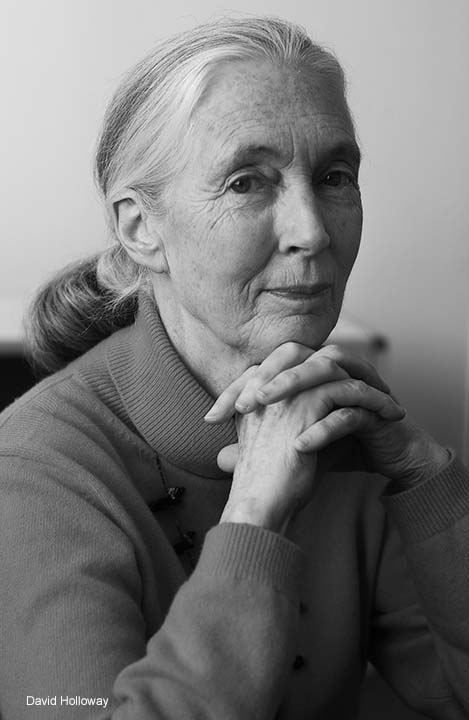
SAVE THE PLANET – ONE FORKFUL AT A TIME
Join the Meat-Free Monday Campaign!
Take Action | Resources | Meal Ideas
Why is this important?

Dr. Jane Goodall
“By becoming vegetarian or vegan, or even just eating less meat, you can make a big difference. It will help animals and it will help the planet. As more and more people eat more and more meat, forests are cleared to provide land to grow grain to feed the billions of animals confined in horrendous factory farms.These animals produce large amounts of methane gas during the process of digestion – an even more potent greenhouse gas than CO2. And the waste from the operations is washed into rivers and lakes, poisoning the water and creating algae blooms. And finally, remember that cows, pigs, chickens and other farmed animals are not just machines – like us they feel pain and know emotions such as contentment and depression. So many people tell me they love animals – but make food choices that do not reflect that love. I fully support the Meatless Monday campaign, helping people in the Cleveland community realize the power of their choices when they band together to help make our world a better place.”
~ Jane Goodall, Ph.D., DBE, Founder, the Jane Goodall Institute & UN Messenger of Peace
The raising of cows, pigs and chicken in animal factories contributes to:
Global warming, as huge amounts of greenhouse-gas emissions are released
The livestock sector generates enormous amounts of the greenhouse gases nitrous oxide (mostly coming from animal manure) and methane (largely produced by the digestive system of ruminants).
Close to 1/3 of all fossil fuels produced in the U.S. go towards animal agriculture. Every link in the chain of events that brings a meat-based diet from the factory or feedlot to the table demands huge amounts of electricity.
A 2010 United Nations report concluded that a shift toward a vegan diet is necessary to combat the worst effects of climate change.
Water pollution from manure runoff into sources of water
Massive amounts of manure get funneled into huge waste lagoons, which often break, leak or overflow, polluting sources of water with nitrogen and phosphorus … causing oxygen-depleting algal blooms, toxic algae and fish kills.
Water depletion from the immense amount of water required to raise crops to feed the animals
More water is withdrawn from the Ogallala aquifer every year for beef production than is used to grow all the fruits and vegetables in the entire country. If we continue pumping out the Ogallala at current rates, it’s only a matter of time before most of the wells in the midwest and southwest will go dry, and portions of these states will become scarcely habitable for human beings.
Human illness
Close to 80% of antibiotics manufactured today are fed daily – like vitamins – to factory raised livestock, to ensure rapid growth. Unnecessary use of antibiotics is taking us towards a time when antibiotics will not longer work.
Toxic algae from manure runoff and fertilizers (used on corn and soy which is fed to factory raised animals) can impair human health. Toxic algae made the water unsafe to drink for several days in Toledo, Ohio.
Honeybee demise from the corn planted to feed the animals
Most corn is genetically manipulated by artificially gene splicing together completely different species, bypassing the natural species barrier. These corn seeds are encapsulated with neonicotine pesticides. Neonicotines are strongly linked to the demise of honeybees, a major pollinator for our food supply.
Foul air in rural communities from nearby animal factories
Dust particles, carrying toxic ammonia and hydrogen sulfide, can penetrate the lungs of humans living nearby.
Rainforest depletion as millions of trees are decimated for grazing and crop production in the Amazon
Livestock production is responsible for 70% of deforestation in the Amazon region of Latin America, where rainforests are being cleared to create new pastures.